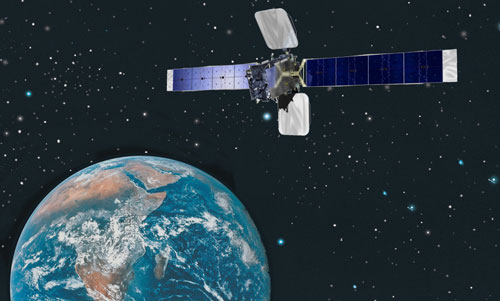
Satellite broadband provider SkyeVine has had a stressful first few months, not least because of problems with its satellite provider, but the company appears to be finding its feet — and finding subscribers in some unlikely places.
Meant as a broadband service for outlying and other underserviced areas that don’t have access to fixed lines and 3G networks, SkyeVine has discovered that users in some areas one wouldn’t necessarily think of as underserviced are demanding satellite-based broadband, too.
Though SkyeVine’s service is aimed mainly at small businesses in outlying areas, the company is getting customers from urban and suburban areas, says acting MD Anton Kotze. “Clients are coming from places like Bryanston, Germiston, Alberton and Brackenhurst,” he says. “It’s surprising what areas actually are underserviced or where service levels [from telecommunications operators] aren’t what they should be.”
Kotze says one of the challenges facing SkyeVine is creating awareness about the service. “People don’t think about satellite as a viable alternative to fixed digital subscriber lines,” he says. “But quality of service and cost mean it is, particularly in areas where there are few, if any, alternatives”.
The main investors in SkyeVine are JSE-listed Ellies and satellite network provider Q-Kon. Q-Kon provides some of the backend services and Ellies is involved mainly with the distribution and installation of equipment.
Kotze came to SkyeVine from Q-Kon — replacing former CEO Steve Rich, who remains a shareholder. He says the company invested an enormous amount of cash launching the service but the company is now moving from a “developmental to an operational phase”.
He says it will take time for SkyeVine to create a large user base but insists it’s pleased with the uptake so far. “Since August 2011, subscriber numbers have been growing 60%/month.”
Though there were fears that the Intelsat New Dawn satellite, which provides SkyeVine’s bandwidth, would not provide the necessary functionality after it encountered deployment problems after launching last year, Kotze says the satellite is “providing the service it was meant to”.
Kotze won’t provide subscriber numbers for competitive reasons and because SkyeVine doesn’t sell services directly to subscribers itself. “We let Internet service providers sell the service. The platform starts with the terminal devices, the dishes and so on, and we’ve combined all of that into a package for service providers as a solution they can take to market.”
SkyeVine has active resellers in SA, Mozambique, Botswana, Zambia and the Democratic Republic of Congo. “We’re in the final stages of set up in Angola and Zimbabwe, too, and there’s testing going on in Kenya.”
Kotze says the company’s main target market has always been “north of the Limpopo” — and sub-Saharan Africa in particular.
The service offers download speeds of 4Mbit/s and uploads of up to 384kbit/s. Kotze says it is “optimally priced” for people who consume less than 5GB of data a month, though the company has users who use more than 10GB/month.
With installation costs of around R7 500 — depending on location — and data around R700 for a 1GB package, Kotze says “it’s affordable to the point where the performance and reliability makes the slight increase in cost justifiable”.
The service works with data bundles of the sort mobile operators provide and, although R700 for 1GB of data sounds expensive, Kotze points out that when one adds up the cost of fixed broadband line rental along with a phone line and a data package, the cost is not as steep as it first appears.
“Also, out-of-bundle data is cheaper than in-bundle,” he says. “It sounds weird, but we’re trying to spread data usage out over more hours than just business hours,” he says. “Consumers can buy top-up data with better rates for different times of the day.” — Craig Wilson, TechCentral
- Subscribe to our free daily newsletter
- Follow us on Twitter or on Google+ or on Facebook
- Visit our sister website, SportsCentral (still in beta)




